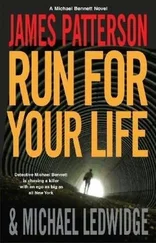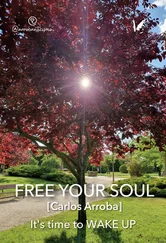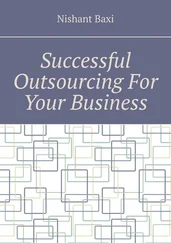Valeria Dubkovskaya - Nectar for Your Soul
Здесь есть возможность читать онлайн «Valeria Dubkovskaya - Nectar for Your Soul» — ознакомительный отрывок электронной книги совершенно бесплатно, а после прочтения отрывка купить полную версию. В некоторых случаях можно слушать аудио, скачать через торрент в формате fb2 и присутствует краткое содержание. ISBN: , Жанр: russian_contemporary, на английском языке. Описание произведения, (предисловие) а так же отзывы посетителей доступны на портале библиотеки ЛибКат.
- Название:Nectar for Your Soul
- Автор:
- Жанр:
- Год:неизвестен
- ISBN:9785449389619
- Рейтинг книги:5 / 5. Голосов: 1
-
Избранное:Добавить в избранное
- Отзывы:
-
Ваша оценка:
- 100
- 1
- 2
- 3
- 4
- 5
Nectar for Your Soul: краткое содержание, описание и аннотация
Предлагаем к чтению аннотацию, описание, краткое содержание или предисловие (зависит от того, что написал сам автор книги «Nectar for Your Soul»). Если вы не нашли необходимую информацию о книге — напишите в комментариях, мы постараемся отыскать её.
Nectar for Your Soul — читать онлайн ознакомительный отрывок
Ниже представлен текст книги, разбитый по страницам. Система сохранения места последней прочитанной страницы, позволяет с удобством читать онлайн бесплатно книгу «Nectar for Your Soul», без необходимости каждый раз заново искать на чём Вы остановились. Поставьте закладку, и сможете в любой момент перейти на страницу, на которой закончили чтение.
Интервал:
Закладка:
This list could go on much further. Just a roster of famous people who have commited suicide would take up dozens of pages.
There are those who claim that great and wealthy people simply “act out of boredom,” that if they needed to think more about their immediate needs they wouldn’t have time to fall into such deep suffering. However, further down the social ladder one finds that ordinary people do not suffer any less than kings, top models and creative geniuses. The only difference between the first and the second is that the tragedies of each star comprise a story in and of themselves, sufficient for a novel or loud headlines in the media, whereas the suffering of billions of average people is simply a statistic for sociologists.
According to the World Health Organization (WHO), stress and depression have become an epidemic which affects all of humanity . The world has seen sharp increases in suicide rates: according to the WHO, around a million people commit suicide each year (that is, one suicide every forty seconds). The number of people who commit suicide surpasses the number who are killed by war or crime. In China alone the number of suicides yearly exceeds 250,000 people.
When researching the theme of “suffering” the thought arises that our entire planet is a stronghold of evil and unhappiness, and that in their lives on Earth people are consigned to suffer from the start. Just such a point of view received wide acceptance during the fifth century, when St. Augustine (354—430) put forth the idea of the “original sin,” committed by Adam and Eve in paradise. In the “Epistle from the Patriarchs of the Eastern-Catholic Church on the Orthodox Faith,” (1723) the Christian Patriarchs stated “It is our belief, that the first man created by God fell from grace when, having heeded the treacherous advice of the serpent, he broke God’s commandment, and that from this the original sin flowed out into all man’s descendents, so that not one person, born into flesh, would be free from that burden and all would feel the consequences of the fall in their earthly lives… For their infraction, God’s justice has sentenced mankind to toil, sorrow, infirmity, birth defects, a grievous life on earth, wandering, and ultimately, death” [6].
And so, according to the Christian version, Adam and Eve are responsible for all the troubles of mankind, who’s crime consisted of the fact that they, tempted by the cunning Serpent, ate of the fruit of the Tree of the Knowledge of Good and Evil , a deed strictly forbidden by God. The Creator was swift in His reprisal, and sent the unheeding people out into the Earth, to toil in sorrow by the sweat of their brow. Eve, who was primarily to blame for their exile, was additionally sentenced to the “pain of childbirth” and to forever be under her husband’s control. And finally, God cursed the very Earth into which He was sending the sinners (Gen. 3:16—19).
The holy fathers were consistent in their negative attitude towards knowledge. In the course of many centuries not only progressive scholars were burned on the fires of the Inquisition, but books as well, which contained forbidden knowledge. It is well known that in 1562, Diego de Landa Calderón (1524—1579), a Spanish monk who was sent to the Americas in order to convert the Indians to Christianity, gathered together and burned massive quantities of Mayan manuscripts. For this and other “feats” he was elevated to the order of Bishop, whilst the priceless knowledge of Mayan culture was forever lost to humanity, which is now racking its brains in an attempt to understand the Mayan prophecy about the Great Transition of December 21, 2012.
By announcing that the eating of the fruit from the Tree of Knowledge is the reason for all suffering, both for those who ate of the fruit and for all their descendents, Saint Augustine and his followers turned the problem on its head, and they themselves, not God, doomed millions of people to suffering. Under the idea of original sin there is nothing left but to suffer or to hang oneself (shoot oneself, poison oneself, etc). What more can one do who has been sentenced by God (!) to live a life of sorrow on an Earth cursed by God (!)?
In reality, the state of things is exactly the opposite; the reason for all suffering is ignorance, and the accumulation of knowledge is the natural mode of deliverance from these things (ignorance and suffering); the renowned Greek philosopher Socrates (469 – 399 B.C.) spoke of this one thousand years before Saint Augustine was even born. It was precisely ignorance that Socrates viewed as the reason for all the afflictions and suffering of mankind. “The only good is knowledge and the only evil is ignorance,” affirmed the great thinker. Socrates, as is known, was recognized by the Oracle at Delphi as the wisest man of his time. Later, millions of people throughout the world would agree with the orcale. And so this wise man left us with a precise diagnosis of the problems (ignorance) and a working recipe for ridding ourselves of them (knowledge). Socrates’ logic is irrefutable, as ignorance is simply the absence of knowledge, a lack of education. There is no reason to find something offensive in this word, ignorance; it is not stupidity, but an unknowing individual, unaware of the answers to certain questions, and nothing more.
The truth of Socrates’ words has been confirmed by history, since there are actually happy people on the Earth! The very fact of their existence decisively proves the fallaciousness of conceptions about original sin and the need for all people to eternally pay for that sin. Happiness, as has been shown, can only be achieved by those people who have managed to comprehend the meaning of life and their destinies (i.e. who have gained knowledge of their destinies), and by those who have the capacity to realize that destiny (who have discovered how to do this). This is attested to by several years of research such as our own and such as that of world renowned American psychologist Abraham Maslow (1908—1970) [7], along with many other scholars.
Socrates presented the complete ignorance of his contemporaries in terms of questions about human nature, the soul and the meaning of life; in precisely those questions which open up the road from suffering to happiness.
We’ll now take a look at what changed regarding this in the twenty-five hundred years that have elapsed since Socrates’ death. Has mankind managed to overcome global ignorance? How much more knowledgeable are we, the people of the twenty-first century, than Socrates’ contemporaries? Or are we just as ignorant as our ancestors?
According to scholars, it took from the start of the Common Era until 1750 for the scope of human knowledge to double. Knowledge had doubled again by 1900 and a third time by 1950. In the ‘70s, human knowledge doubled within the span of ten years, in the ‘80s within five, and by the end of the ‘90s human knowledge was being doubled practically once a year.
The amount of information, particularly digital, is growing even quicker. If, at the current rate, the information created by mankind in a year were to be converted to book format, it would comprise twelve stacks of books, each one reaching from the Earth to the Sun (93 million miles).
The growth of knowledge is particularly evident in technological development. The modern cell phone contains a microprocessor which has more processing power than all the processors which were on the Apollo spacecraft during its flight to the Moon in 1969!
Thousands of colleges and universities are dedicated to the training and education of people all around the world. In the U.S. alone, 260 billion dollars are dedicated to education and science each year.
Читать дальшеИнтервал:
Закладка:
Похожие книги на «Nectar for Your Soul»
Представляем Вашему вниманию похожие книги на «Nectar for Your Soul» списком для выбора. Мы отобрали схожую по названию и смыслу литературу в надежде предоставить читателям больше вариантов отыскать новые, интересные, ещё непрочитанные произведения.
Обсуждение, отзывы о книге «Nectar for Your Soul» и просто собственные мнения читателей. Оставьте ваши комментарии, напишите, что Вы думаете о произведении, его смысле или главных героях. Укажите что конкретно понравилось, а что нет, и почему Вы так считаете.












